From a fresh and exciting new voice, a hilarious and insightful examination of the search for love and the meaning of marriage in a time of anxiety, independence, and indecision.
Weddings. They’re fun, festive, and joyful, and at a time when people marry later in life—and sometimes not at all—they offer endless opportunities to reexamine love and what we want for ourselves, regardless of whether or not our aim is a walk down the aisle. In Save the Date, Jen Doll charts the course of her own perennial wedding guesthood, from the ceremony of distant family members when she was eight to the recent nuptials of a new boyfriend’s friends.
There’s the first trip home for a childhood pal’s big day, in which she learns that her first love has eloped to Hawaii. There’s the destination wedding attended with little baggage beyond a suitcase of strappy sandals and summery party dresses. Regrettably, there is a series of celebrations that mean the end to a valued friendship. There’s also the wedding that offers all the promise of new love.
Wedding experiences come in as varied an assortment as the gowns at any bridal shop, and Doll turns a keen eye to each, delivering a heartfelt exploration of contemporary relationships. Funny, honest, and affecting, Save the Date is a fresh and spirited look at the many ways in which we connect to one another.
Weddings. They’re fun, festive, and joyful, and at a time when people marry later in life—and sometimes not at all—they offer endless opportunities to reexamine love and what we want for ourselves, regardless of whether or not our aim is a walk down the aisle. In Save the Date, Jen Doll charts the course of her own perennial wedding guesthood, from the ceremony of distant family members when she was eight to the recent nuptials of a new boyfriend’s friends.
There’s the first trip home for a childhood pal’s big day, in which she learns that her first love has eloped to Hawaii. There’s the destination wedding attended with little baggage beyond a suitcase of strappy sandals and summery party dresses. Regrettably, there is a series of celebrations that mean the end to a valued friendship. There’s also the wedding that offers all the promise of new love.
Wedding experiences come in as varied an assortment as the gowns at any bridal shop, and Doll turns a keen eye to each, delivering a heartfelt exploration of contemporary relationships. Funny, honest, and affecting, Save the Date is a fresh and spirited look at the many ways in which we connect to one another.
From the bestselling authors of The Right Nation, a visionary argument that our current crisis in government is nothing less than the fourth radical transition in the history of the nation-state
Dysfunctional government: It’s become a cliché, and most of us are resigned to the fact that nothing is ever going to change. As John Micklethwait and Adrian Wooldridge show us, that is a seriously limited view of things. In fact, there have been three great revolutions in government in the history of the modern world. The West has led these revolutions, but now we are in the midst of a fourth revolution, and it is Western government that is in danger of being left behind.
Now, things really are different. The West’s debt load is unsustainable. The developing world has harvested the low-hanging fruits. Industrialization has transformed all the peasant economies it had left to transform, and the toxic side effects of rapid developing world growth are adding to the bill. From Washington to Detroit, from Brasilia to New Delhi, there is a dual crisis of political legitimacy and political effectiveness.
The Fourth Revolution crystallizes the scope of the crisis and points forward to our future. The authors enjoy extraordinary access to influential figures and forces the world over, and the book is a global tour of the innovators in how power is to be wielded. The age of big government is over; the age of smart government has begun. Many of the ideas the authors discuss seem outlandish now, but the center of gravity is moving quickly.
This tour drives home a powerful argument: that countries’ success depends overwhelmingly on their ability to reinvent the state. And that much of the West—and particularly the United States—is failing badly in its task. China is making rapid progress with government reform at the same time as America is falling badly behind. Washington is gridlocked, and America is in danger of squandering its huge advantages from its powerful economy because of failing government. And flailing democracies like India look enviously at China’s state-of-the-art airports and expanding universities.
The race to get government right is not just a race of efficiency. It is a race to see which political values will triumph in the twenty-first century—the liberal values of democracy and liberty or the authoritarian values of command and control. The stakes could not be higher.
Dysfunctional government: It’s become a cliché, and most of us are resigned to the fact that nothing is ever going to change. As John Micklethwait and Adrian Wooldridge show us, that is a seriously limited view of things. In fact, there have been three great revolutions in government in the history of the modern world. The West has led these revolutions, but now we are in the midst of a fourth revolution, and it is Western government that is in danger of being left behind.
Now, things really are different. The West’s debt load is unsustainable. The developing world has harvested the low-hanging fruits. Industrialization has transformed all the peasant economies it had left to transform, and the toxic side effects of rapid developing world growth are adding to the bill. From Washington to Detroit, from Brasilia to New Delhi, there is a dual crisis of political legitimacy and political effectiveness.
The Fourth Revolution crystallizes the scope of the crisis and points forward to our future. The authors enjoy extraordinary access to influential figures and forces the world over, and the book is a global tour of the innovators in how power is to be wielded. The age of big government is over; the age of smart government has begun. Many of the ideas the authors discuss seem outlandish now, but the center of gravity is moving quickly.
This tour drives home a powerful argument: that countries’ success depends overwhelmingly on their ability to reinvent the state. And that much of the West—and particularly the United States—is failing badly in its task. China is making rapid progress with government reform at the same time as America is falling badly behind. Washington is gridlocked, and America is in danger of squandering its huge advantages from its powerful economy because of failing government. And flailing democracies like India look enviously at China’s state-of-the-art airports and expanding universities.
The race to get government right is not just a race of efficiency. It is a race to see which political values will triumph in the twenty-first century—the liberal values of democracy and liberty or the authoritarian values of command and control. The stakes could not be higher.
In Capital, Commonwealth Prize–winning author Rana Dasgupta examines one of the great trends of our time: the expansion of the global elite. Capital is an intimate portrait of the city of Delhi which bears witness to the extraordinary transmogrification of India’s capital. But it also offers a glimpse of what capitalism will become in the coming, post-Western world. The story of Delhi is a parable for where we are all headed.
The boom following the opening up of India’s economy plunged Delhi into a tumult of destruction and creation: slums and markets were ripped down, and shopping malls and apartment blocks erupted from the ruins. Many fortunes were made, and in the glassy stores nestled among the new highways, customers paid for global luxury with bags of cash. But the transformation was stern, abrupt and fantastically unequal, and it gave rise to strange and bewildering feelings. The city brimmed with ambition and rage. Violent crimes stole the headlines.
In the style of V. S. Naipaul’s now classic personal journeys, Dasgupta shows us this city through the eyes of its people. With the lyricism and empathy of a novelist, Dasgupta takes us through a series of encounters – with billionaires and bureaucrats, drug dealers and metal traders, slum dwellers and psychoanalysts – which plunge us into Delhi’s intoxicating, and sometimes terrifying, story of capitalist transformation. Together these people comprise a generation on the cusp, like that of Gilded Age New York: who they are, and what they want, says a tremendous amount about what the world will look like in the rest of the twenty-first century.
Interweaving over a century of history with his personal journey, Dasgupta presents us with the first literary portrait of one of the twenty-first century’s fastest-growing megalopolises – a dark and uncanny portrait that gives us insights, too, as to the nature of our own – everyone’s – shared, global future.
The boom following the opening up of India’s economy plunged Delhi into a tumult of destruction and creation: slums and markets were ripped down, and shopping malls and apartment blocks erupted from the ruins. Many fortunes were made, and in the glassy stores nestled among the new highways, customers paid for global luxury with bags of cash. But the transformation was stern, abrupt and fantastically unequal, and it gave rise to strange and bewildering feelings. The city brimmed with ambition and rage. Violent crimes stole the headlines.
In the style of V. S. Naipaul’s now classic personal journeys, Dasgupta shows us this city through the eyes of its people. With the lyricism and empathy of a novelist, Dasgupta takes us through a series of encounters – with billionaires and bureaucrats, drug dealers and metal traders, slum dwellers and psychoanalysts – which plunge us into Delhi’s intoxicating, and sometimes terrifying, story of capitalist transformation. Together these people comprise a generation on the cusp, like that of Gilded Age New York: who they are, and what they want, says a tremendous amount about what the world will look like in the rest of the twenty-first century.
Interweaving over a century of history with his personal journey, Dasgupta presents us with the first literary portrait of one of the twenty-first century’s fastest-growing megalopolises – a dark and uncanny portrait that gives us insights, too, as to the nature of our own – everyone’s – shared, global future.
The Freakonomics of math—a math-world superstar unveils the hidden beauty and logic of the world and puts its power in our hands
The math we learn in school can seem like a dull set of rules, laid down by the ancients and not to be questioned. In How Not to Be Wrong, Jordan Ellenberg shows us how terribly limiting this view is: Math isn’t confined to abstract incidents that never occur in real life, but rather touches everything we do—the whole world is shot through with it. Math allows us to see the hidden structures underneath the messy and chaotic surface of our world. It’s a science of not being wrong, hammered out by centuries of hard work and argument.
The math we learn in school can seem like a dull set of rules, laid down by the ancients and not to be questioned. In How Not to Be Wrong, Jordan Ellenberg shows us how terribly limiting this view is: Math isn’t confined to abstract incidents that never occur in real life, but rather touches everything we do—the whole world is shot through with it. Math allows us to see the hidden structures underneath the messy and chaotic surface of our world. It’s a science of not being wrong, hammered out by centuries of hard work and argument.
Armed with the tools of mathematics, we can
see through to the true meaning of information we take for granted:
*How early should you get to the airport?
*What does “public opinion” really represent?
*Why do tall parents have shorter children?
*Who really won Florida in 2000?
*And how likely are you, really, to develop cancer?
How Not to Be Wrong presents the surprising revelations behind all of these questions and many more, using the mathematician’s method of analyzing life and exposing the hard-won insights of the academic community to the layman—minus the jargon. Ellenberg chases mathematical threads through a vast range of time and space, from the everyday to the cosmic, encountering, among other things, baseball, Reaganomics, daring lottery schemes, Voltaire, the replicability crisis in psychology, Italian Renaissance painting, artificial languages, the development of non-Euclidean geometry, the coming obesity apocalypse, Antonin Scalia’s views on crime and punishment, the psychology of slime molds, what Facebook can and can’t figure out about you, and the existence of God.
Ellenberg pulls from history as well as from the latest theoretical developments to provide those not trained in math with the knowledge they need. Math, as Ellenberg says, is “an atomic-powered prosthesis that you attach to your common sense, vastly multiplying its reach and strength.” With the tools of mathematics in hand, you can understand the world in a deeper, more meaningful way. How Not to Be Wrong will show you how.
From New York Times-bestselling author Philip Kerr comes an amazing departure: an intense psychological thriller, sure to garner even more acclaim for this powerhouse author on the rise.
Gil Martins, an agent with the FBI’s Domestic Terrorism Unit in Houston, confronts the violence generated by extremism within our nation’s borders every day. He sees hatred and destruction wrought by every kind of “ism” there is, and the zealots who kill in their names. Until now, he has always been a part of the solution—however imperfect—a part of justice. But when Gil discovers he played a key role in wrongly condemning an innocent man to death row, it shakes his faith—in the system, in himself, and in God—deeply. It even estranges him from his wife and son.
Gil Martins, an agent with the FBI’s Domestic Terrorism Unit in Houston, confronts the violence generated by extremism within our nation’s borders every day. He sees hatred and destruction wrought by every kind of “ism” there is, and the zealots who kill in their names. Until now, he has always been a part of the solution—however imperfect—a part of justice. But when Gil discovers he played a key role in wrongly condemning an innocent man to death row, it shakes his faith—in the system, in himself, and in God—deeply. It even estranges him from his wife and son.
Desperate, Gil offers up a prayer. To know God is there, not through a sign or physical demonstration but through the strength to cope with his ever-growing, ever-creeping doubts.
His problems become more than personal as things heat up in Houston. A serial killer terrorizing the morally righteous turns out to have religious motivations, upping the case from homicide to domestic terrorism. A number of prominent secular icons die or are grievously injured abruptly and under suspicious circumstances, the latest of which is a New Atheist writer who’s fallen into an inexplicable coma. Left and right, it seems Gil can’t escape the power of God and murder.
As Gil investigates both cases, he realizes that there may be a connection—answering his prayers in a most terrifying way.
Scotland Yard’s Murder Squad faces the most shocking case of its existence, in the extraordinary new historical thriller from the author of the acclaimed national bestseller The Yard.
London, 1890. Four vicious murderers have escaped from prison, part of a plan gone terribly wrong, and now it is up to Walter Day, Nevil Hammersmith, and the rest of Scotland Yard’s Murder Squad to hunt down the convicts before the men can resume their bloody spree. But they might already be too late. The killers have retribution in mind, and one of them is heading straight toward a member of the Murder Squad, and his family.
And that isn’t even the worst of it. During the escape, the killers have stumbled upon the location of another notorious murderer, one thought gone for good but now prepared to join forces with them.
Jack the Ripper is loose in London once more.
London, 1890. Four vicious murderers have escaped from prison, part of a plan gone terribly wrong, and now it is up to Walter Day, Nevil Hammersmith, and the rest of Scotland Yard’s Murder Squad to hunt down the convicts before the men can resume their bloody spree. But they might already be too late. The killers have retribution in mind, and one of them is heading straight toward a member of the Murder Squad, and his family.
And that isn’t even the worst of it. During the escape, the killers have stumbled upon the location of another notorious murderer, one thought gone for good but now prepared to join forces with them.
Jack the Ripper is loose in London once more.
Adam Resnick, an Emmy Award-winning writer for NBC’s Late Night with David Letterman, has spent his entire life trying to avoid interaction with people. While courageously admitting to being “euphorically antisocial” and “sick in the head,” he allows us to plunge even deeper into his troubled psyche in this unabashedly uproarious memoir-in-essays where we observe Resnick’s committed indifference to family, friends, strangers, and the world at large. His mind shaped by such touchstone events as a traumatic Easter egg hunt when he was six (which solidified his hatred of parties) and overwrought by obsessions, including one with a plastic shopping bag (which solidified his hatred for change), he refuses to be burdened by chores like basic social obligation and personal growth, living instead by his own steadfast rule: “I refuse to do anything I don’t want to do.”
Cut from a similar (if somewhat stranger) cloth as Albert Brooks or Louis C.K., Resnick is the crazy, miserable bastard you can’t help rooting for, and the brilliant Will Not Attend showcases this seasoned comedy writer at his brazenly hilarious best.
Cut from a similar (if somewhat stranger) cloth as Albert Brooks or Louis C.K., Resnick is the crazy, miserable bastard you can’t help rooting for, and the brilliant Will Not Attend showcases this seasoned comedy writer at his brazenly hilarious best.

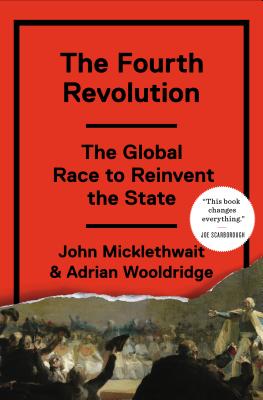
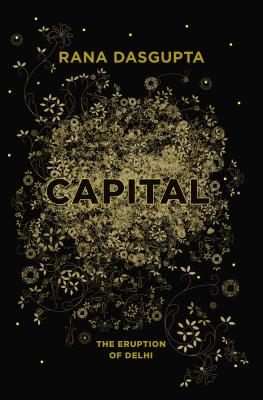
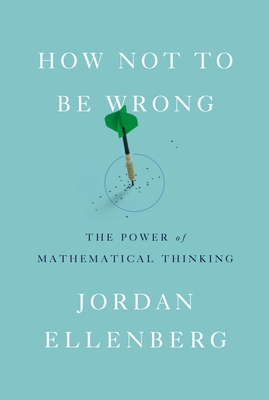
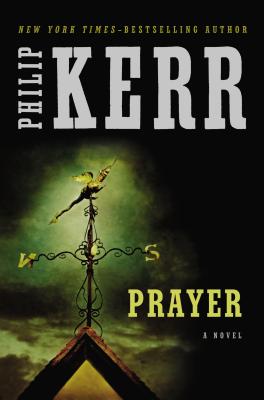

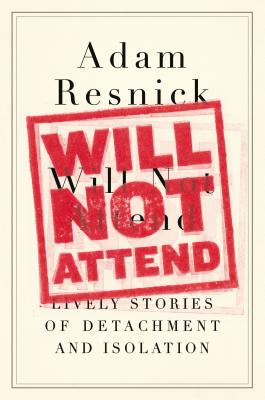
No comments:
Post a Comment